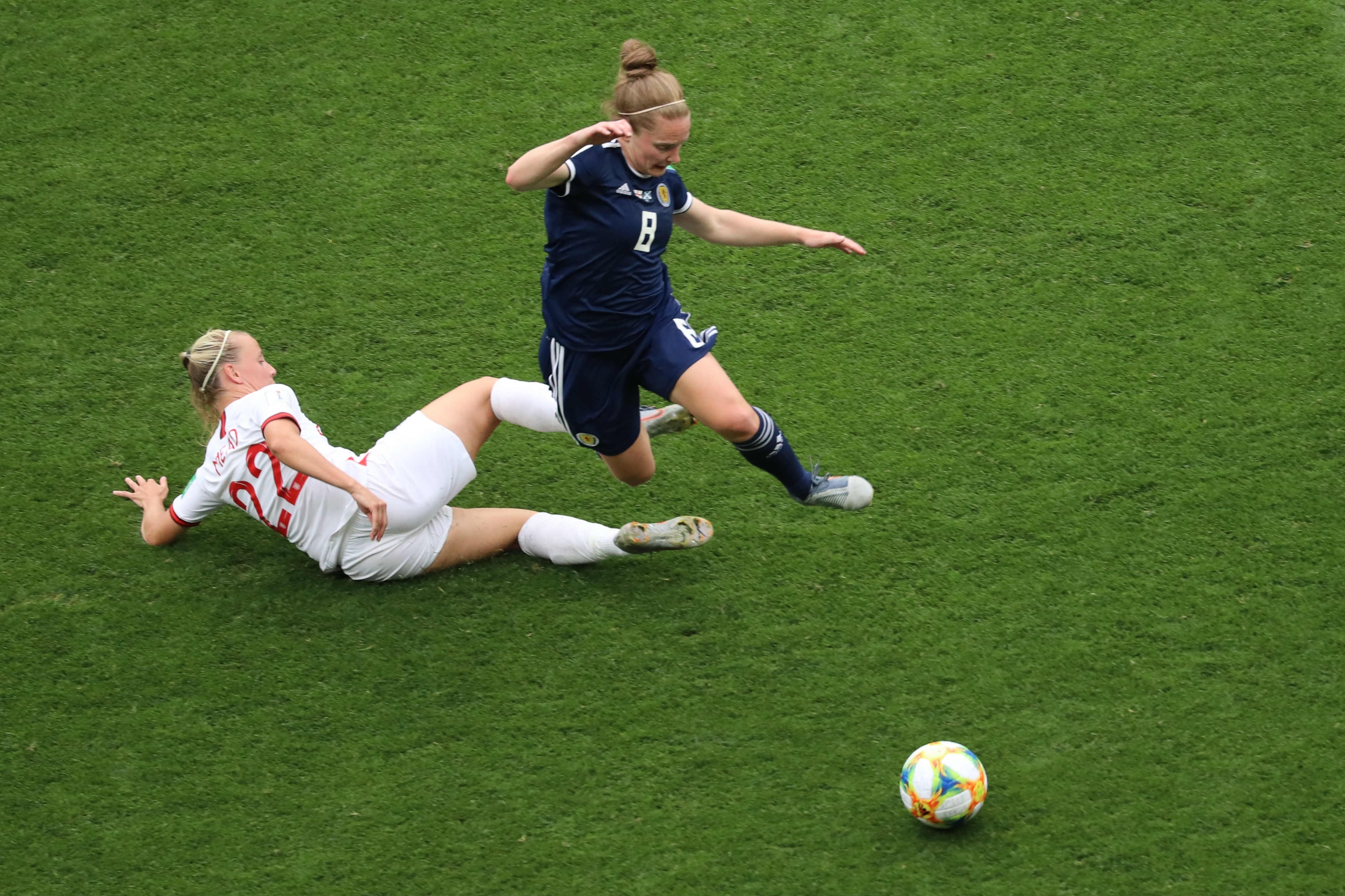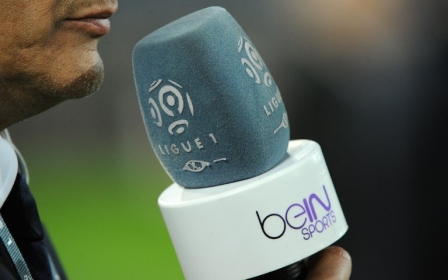FIFA orders Saudis to stop illegal Women's World Cup television feeds

FIFA has called on Arabsat, the Saudi-backed satellite broadcaster, to stop transmitting pirated feeds of Women's World Cup games from a Qatari network in an ongoing sports television rights dispute linked to the diplomatic crisis in the region.
Illegal feeds from Doha-based beIN Sports of top football games have been broadcast by Saudi-based beoutQ since 2017.
Screenshots from beoutQ's coverage of England's victory over Scotland at the Women's World Cup last week clearly show the beIN logo on the screen.
"FIFA is aware that unauthorized transmissions of the FIFA Women's World Cup 2019 are being made available across the MENA region, primarily Saudi Arabia, via the pirate broadcaster known as beoutQ," FIFA, which sells the exclusive rights to beIN, said in a statement to the Associated Press (AP) news agency.
"BeoutQ's unauthorised transmissions of the FIFA Women's World Cup 2019 are made available by way of Arabsat satellite frequencies.
"FIFA is therefore seeking the cooperation of Arabsat in addressing the misuse of FIFA's intellectual property."
Bin Salman advisor singled out
Arabsat was founded in 1976 by members of the Arab League and the Saudis hold the biggest stake with 36.7 percent.
There was no immediate response to a request for comment from Arabsat, AP said.
"FIFA continues to explore each of its legal options as a means to address beoutQ's unauthorized broadcasts," football's governing body said.
"In this regard, FIFA is working with a number of other rights holders whose rights have also been infringed by beoutQ."
Saudi authorities declared beIN illegal in the kingdom as part of an economic and diplomatic boycott of Qatar by Saudi Arabia and its allies, which accuse Doha of backing terrorism and seeking closer ties with rival Iran. Qatar rejects the claims.
BeIN has pursued Arabsat through the French courts and in January launched a website to expose what it described as "industrial scale theft".
The beoutq.tv website, which details programmes that broadcast illegally in more than 20 countries, has a timeline of events and points the finger at prominent Saudi figures under the headline: "The Saudi State-Supported Piracy of World Sport and Entertainment".
Singled out by the website is Saud al-Qahtani, the close advisor to Saudi Crown Prince Mohammed bin Salman who has been implicated in the murder of the Washington Post and Middle East Eye columnist Jamal Khashoggi.
'We are not fighting this battle alone'
"Even if we are illegally denied access to justice in Saudi Arabia, we will use every means possible to hold beoutQ and Arabsat to account for their daily theft of rights-holders' intellectual property," beIN group chief executive Yousef al-Obaidly said on Sunday.
"But we are not fighting this battle alone - the weight of the international community is now firmly coming to bear on Saudi Arabia to end its safe haven for piracy, which is destroying not only the economic model of the global sports and entertainment industry, but the livelihoods of content creators all around the world."
In January, FIFA, UEFA and the Asian Football Confederation issued a joint statement with the English Premier League, German Bundesliga and Spanish league criticising "persistent and illegal screening" of matches where beIN owns the Middle East rights.
Middle East Eye delivers independent and unrivalled coverage and analysis of the Middle East, North Africa and beyond. To learn more about republishing this content and the associated fees, please fill out this form. More about MEE can be found here.






